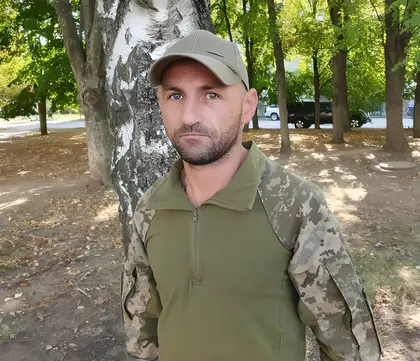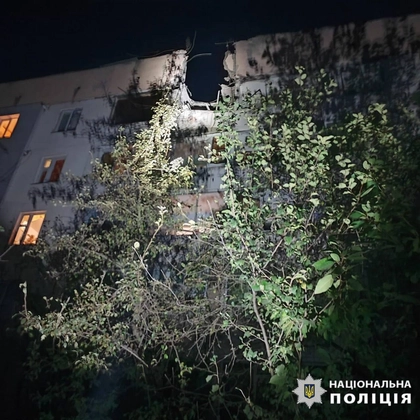A post on Facebook on Sunday, Sept. 10 by Yaroslav Halas, a member of Ukraine’s 128th Mountain Assault Brigade, tells how his unit delivered a massive blow against Russian forces thanks to the bravery of one man.
Vasyl Dudynets, a soldier serving as a vehicle mechanic with the brigade, volunteered to launch a captured enemy tank filled with explosives against Russian defenses in the Zaporizhzhia region, a tactic tried by the Russians with little success previously.
Dudynets, who hails from Mukachevo in the Zakarpattia region of western Ukraine, was working as a migrant worker in Czechia when Russia launched its full-scale invasion. He returned at the beginning of March 2022, which he says was the day after his baby daughter was baptized and enlisted into the 128th his “local regiment.”
Halas only provides outline details of the plan, so it is not clear exactly where, when or at what time of day the operation took place.
On the face of it, the strategy seemed simple enough. The captured tank was prepared for the operation by filling every available space with explosives and artillery shells. Dudynets would then drive the tank as close to the enemy lines as he could, before jumping out, retiring to a safe distance and then remotely detonating its deadly cargo.
Dudynets stopped just short of the defensive minefield in front of the enemy position, well within range of the enemy’s weapons, then leaped out and ran back to his own unit’s position before the payload was detonated.

South Korea Demands 'Immediate Withdrawal' of North Korean Troops in Russia
According to the brigade’s press service: “The blast from the detonation was so effective that no one has disturbed our infantry from those positions ever since.”
When asked about the potentially suicidal mission, Dudyets said: “Naturally, I was fully aware that I might not make it back. It would have been instant death if the tank had been hit [by the enemy] and the explosives had gone off.
“I mean, it was clear – afterward I would either be alive or dead. This is not the case [in normal battle] when your arms and legs can be torn off, and then your wife or children have to help you around in a wheelchair and wait on you hand-and-foot.
“I would prefer to come back unharmed or die instantly. That is why I signed up right away when the commanders suggested this particular combat mission.”
He stressed that he had joined the army to fight Russians and said he was doing his bit so that the war could be “ended as soon as possible so that we could go home and raise our children.”
Halas noted that Dudynets had been given the nickname “Kamikaze” by his comrades after successfully completing the mission.
The Japanese word Kamikaze means “Divine Wind,” and was used to describe World War II suicide pilots because of the legend that, in the 16th Century, the naval fleet of the invading Mongol hordes was sunk after “the gods sent a heavenly, or divine, wind.”
You can also highlight the text and press Ctrl + Enter






